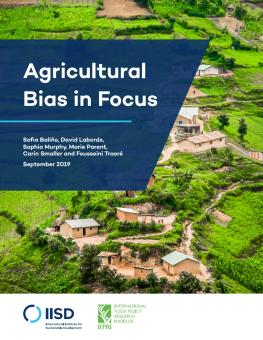
Agricultural Bias in Focus
This paper provides further details and explains how to measure and understand the source of agricultural bias in a country, including examples and country case studies.
The report Transforming Agriculture in Africa and Asia: What Are the Policy Priorities? showed that successful agricultural transformation has depended on interacting agricultural policies as well as the broader economic policy environment.
A key finding was that agricultural transformation succeeded when governments removed the policies and addressed the market failures that disadvantaged the agricultural sector relative to the rest of the economy. We referred to this relative disadvantage as the anti-agricultural bias.
To explain how these policies interact and which policies affect different aspects of the overall economy, we developed a policy taxonomy, with a focus on those that affect prices in agricultural markets (see A Policy Taxonomy for Agricultural Transformation). The policy taxonomy came from an inventory of policies collected from over 250 articles and is derived from the policy framework used in Transforming Agriculture in Africa and Asia: What Are the Policy Priorities?
This paper provides further details and explains how to measure and understand the source of agricultural bias in a country, including examples and country case studies.
You might also be interested in
Sustainable Asset Valuation of the Nutrition Sensitive Agriculture Capacity Strengthening Project in Ethiopia
This report analyzes the social, economic, and environmental outcomes of implementing agroforestry and climate-smart agriculture in Ethiopia.
Good COP? Bad COP?: Food systems at COP29
The 29th United Nations Climate Conference (COP 29) in Baku failed to build on the notable progress made on food systems at COP 28. However, it wasn't all doom and gloom.
IISD Trade and Sustainability Review, December 2024
This edition of the IISD Trade and Sustainability Review presents four expert perspectives on how agricultural support and subsidies can promote sustainability in developing and least developed countries.
The Responsible Agricultural Investment Tool for Agribusiness and Case Studies
This report summarizes a collaboration to support agribusinesses in complying with principles of responsible investment in agriculture and food systems.